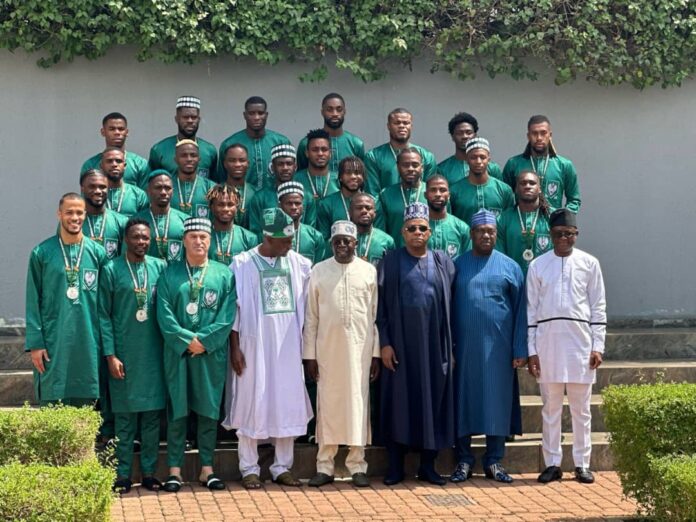Estimated reading time: 5 minutes
Agriculture is one of the most important sectors of the Nigerian economy, contributing about 25% of the Gross Domestic Product (GDP) and employing about 70% of the labour force. However, the sector faces many challenges, such as low productivity, climate change, pests and diseases, post-harvest losses, poor market access, and inadequate infrastructure. These challenges limit the potential of agriculture to ensure food security, generate income, and reduce poverty in Nigeria.
Fortunately, technology and artificial intelligence (AI) offer promising solutions to address some of these challenges and transform the agricultural sector in Nigeria. Technology and AI can help farmers to improve their efficiency, productivity, profitability, and resilience in the face of changing environmental and market conditions. Technology and AI can also enable better decision-making, planning, monitoring, and evaluation of agricultural activities and outcomes.
ALSO READ: Nigerian seaports face closure threat as unions protest revenue reduction plan
Some of the ways that technology and AI can improve agriculture in Nigeria are:
Soil-less farming
The impact of AI on Nigeria’s agricultural sector is evident in the significant departure from soil-based farming towards soil-less cultivation techniques. Methods such as hydroponics and aeroponics leverage AI technologies to create controlled environments where crops can thrive without the need for soil. These methods use sensors, cameras, and algorithms to monitor and adjust the optimal levels of water, nutrients, light, temperature, and humidity for each crop. Soil-less farming can save up to 90% of water, reduce land use, increase yield and quality, and prevent soil erosion and contamination.
Precision agriculture
Precision agriculture is the application of technology and AI to collect, analyse, and act on data about crops, soils, weather, pests, diseases, markets, and other factors that affect agricultural production. Precision agriculture can help farmers to optimize their inputs, such as seeds, fertilizers, pesticides, water, and labour; enhance their outputs, such as yield, quality, and profitability; and reduce their environmental impact. Some examples of precision agriculture tools are drones, satellites, remote sensing, GPS, GIS, IoT devices, smart irrigation systems, digital soil mapping, crop modelling, pest and disease detection and prediction.
Digital platforms
Digital platforms are online or mobile applications that connect farmers with various stakeholders in the agricultural value chain. Digital platforms can provide farmers with access to information, services, markets, finance, and extension. For instance, digital platforms can help farmers to access weather forecasts, agronomic advice, market prices, quality standards, buyers, sellers, input suppliers, insurance providers, credit facilities, and training opportunities. Digital platforms can also facilitate data collection, sharing, and analysis among different actors in the agricultural sector.
Artificial intelligence
Artificial intelligence is the ability of machines or software to perform tasks that normally require human intelligence, such as learning, reasoning, problem-solving, and decision-making. Artificial intelligence can enhance the capabilities of technology and digital platforms in agriculture by enabling more accurate, timely, and personalized solutions for farmers. For example, artificial intelligence can help farmers to diagnose crop diseases using image recognition, recommend optimal crop varieties using machine learning, predict crop yield using deep learning, and optimize farm management using natural language processing.
These are some of the ways that technology and AI can improve agriculture in Nigeria. However, there are also some challenges and barriers that need to be overcome to realize the full potential of these innovations. Some of these challenges are:
Lack of awareness
Many farmers are not aware of the benefits and opportunities of technology and AI in agriculture or how to access them. There is a need for more awareness creation, education, and sensitization among farmers and other stakeholders on the value proposition of technology and AI in agriculture.Many farmers are not aware of the benefits and opportunities of technology and AI in agriculture or how to access them. There is a need for more awareness creation, education, and sensitization among farmers and other stakeholders on the value proposition of technology and AI in agriculture.
Lack of infrastructure
Technology and AI require reliable infrastructure, such as electricity, internet connectivity, and mobile network coverage, to function effectively. However, many rural areas in Nigeria lack adequate infrastructure or face frequent disruptions that limit the adoption and use of technology and AI in agriculture.
Lack of skills
Technology and AI require certain skills, such as digital literacy, data literacy, and analytical skills, to operate and benefit from them. However, many farmers lack these skills or face difficulties in acquiring them due to low education levels, language barriers, or limited access to training opportunities.
Lack of regulation
Technology and AI pose some ethical, legal, and social implications that need to be addressed by appropriate policies and regulations. For instance, technology and AI may raise issues of data privacy, security, ownership, quality, bias, accountability, and transparency that need to be safeguarded by clear rules and standards.
To overcome these challenges and barriers, there is a need for a coordinated and collaborative effort among various stakeholders in the agricultural sector and beyond. Some of the key stakeholders are:
Government
The government has a crucial role to play in creating an enabling environment for technology and AI in agriculture. The government can do this by developing and implementing a national digital agriculture strategy, providing infrastructure and incentives, supporting research and innovation, establishing policies and regulations, and promoting public-private partnerships.







